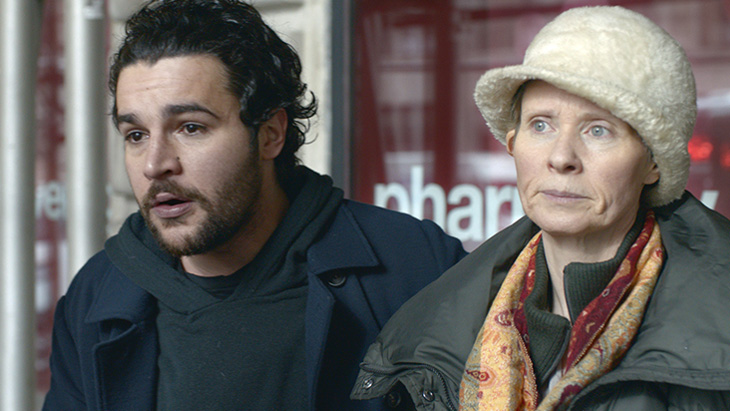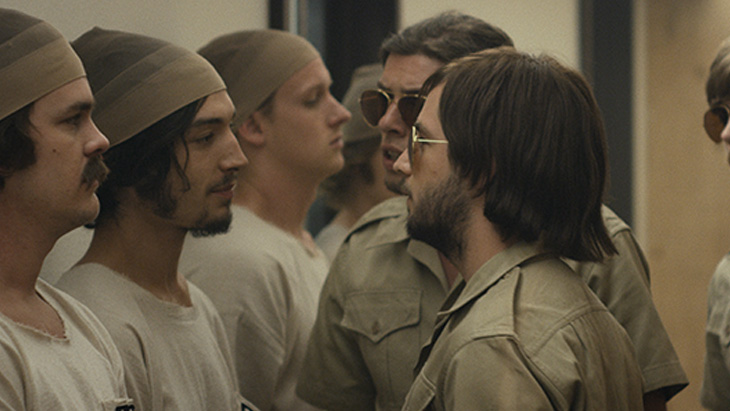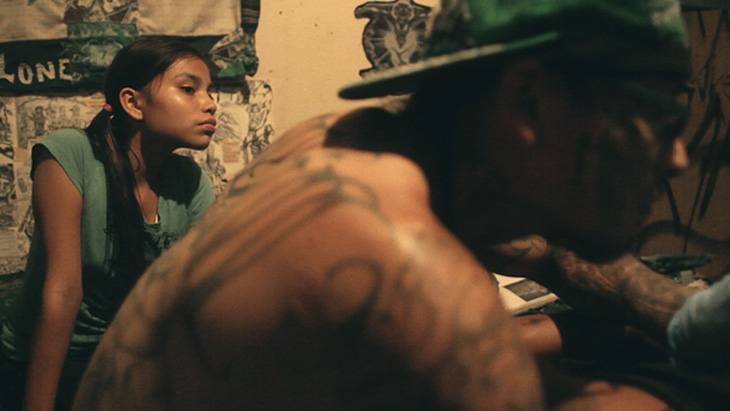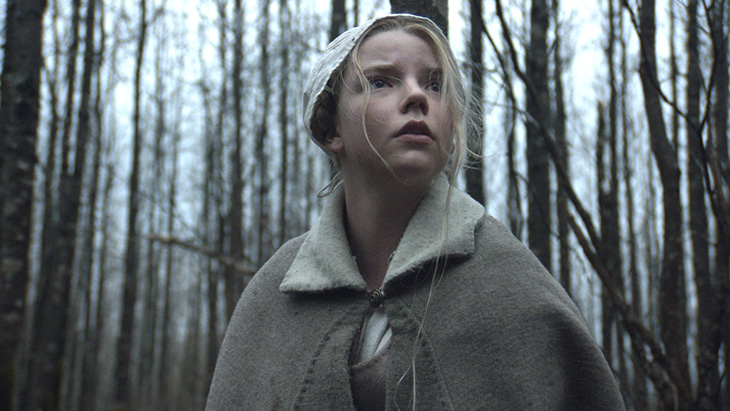
The Witch (dir. Robert Eggers, USA)
Sundance Winner: Best Director, Dramatic Feature
Probably my most anticipated film of this year’s line-up was also the first I watched. Robert Eggers’ gothic horror film The Witch is the story of a British family of pilgrims, banished from their New England settlement for their father’s outspoken views, who fall victim to a malevolent force in the nearby woods. William (Ralph Ineson), Kate (Kate Dickie) and their four children were already struggling to survive, but when baby Sam is stolen from right under their noses, the family becomes consumed with paranoia and inevitably turn on each other.
Eggers’s film is an excellent, atmospheric slow-burn packed with startling imagery and suffocating tension, but he also makes the bold decision of revealing the titular crone relatively early on. At once exonerating the family members, Eggers is also making a promise to his audience that tangible, yet supernatural forces are in play and will be confronted. The result is a highly detailed, meticulous fairytale, that sticks firmly to its period setting, not least in terms of language, while never taking the easy way out.
I had hoped Eggers would have taken the story even further in the final act, but what does unfold onscreen is fantastic. That the film’s greatest performance comes from a large black Billygoat is in no way a criticism of the faultless cast, and Anya Taylor-Joy in particular may well break out thanks to her serenely vulnerable turn as oldest daughter Thomasin.
Read Ryland’s review from Sundance here
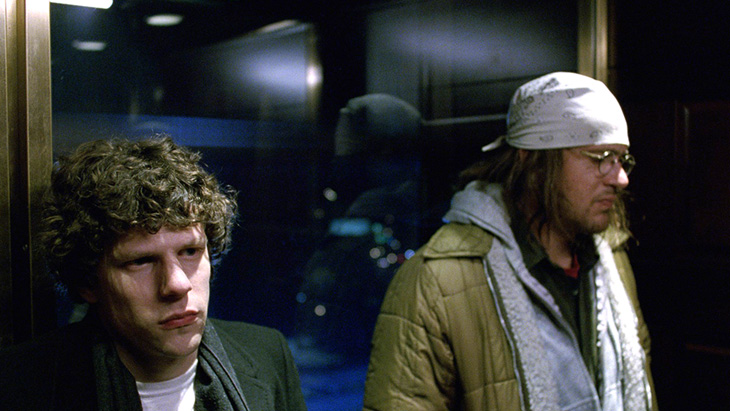
The End Of The Tour (dir. James Ponsoldt, USA)
I must confess to having next to no exposure to the work of American author David Foster Wallace prior to seeing this film, which is especially confounding since his magnum opus Infinite Jest appeared on shelves in 1996, the same year I began university.
The film charts the road trip taken by Wallace (Jason Segel) and Rolling Stone reporter David Lipsky (Jesse Eisenberg), as the journalist attempts to crack the enigma that is Wallace during the last leg of his nationwide book tour. Lipsky, a newly published novelist himself, struggles to reconcile the down-to-earth, slovenly man he sees before him with the literary genius lauded around the world.
Similar in theme to films like Amadeus and Frank in its examination of gifted artistry through the eyes of a lesser talent, The End Of The Tour manages to steer clear of the pretentiousness or idolatry that often plagues stories of this nature, instead presenting an incredibly funny film about two men who genuinely seem to get along.
Jason Segel in particular is a revelation as Wallace, which allows the actor to display a whole new side to his talent and a depth we have never seen before now. Jesse Eisenberg, in a role close to his regular Zuckerberg-esque screen persona, provides a valuable counterweight to Wallace’s vivid, rambling world views.
Read Ryland’s review from Sundance here

Cartel Land (dir. Matthew Heineman, USA)
Sundance Winner: Best Documentary; Best Director, Documentary
There is a region in Arizona, close to the border that has unofficially been ceded to the Mexican drug cartels. The military is unwilling to defend it, and the local residents are poorly equipped, leaving local militia groups - in the name of freedom, patriotism and whatever else - to roam freely, heavily armed, and inflict their own brand of justice on those they find.
In its efforts to tell all sides of its story, Cartel Land feels somewhat directionless. It eventually gravitates towards Dr. Jose Mireles, who founded the Autodefens force, only for him to also appear increasingly flawed as the film goes on. Tragically, everyone seems to be at fault in some way, or at the vey least their motivations are plagued by personal agendas that are not in their country’s best interests, despite what they declare publicly.
The overly glossy aesthetic of the documentary, frequently employing cinematography better suited to a Hollywood feature than impartial reportage, is often at odds with the material. That said, the access the filmmakers achieve is undeniably impressive.
As a result of these factors, and the very specific part of this huge problem that the film focuses on, the documentary runs out of steam about an hour in, leaving itself with nowhere to go for the reminder of its runtime. It probably didn’t help that I had seen Denis Villeneuve’s Sicario just a few days earlier.
Read Jason’s review from Sundance here
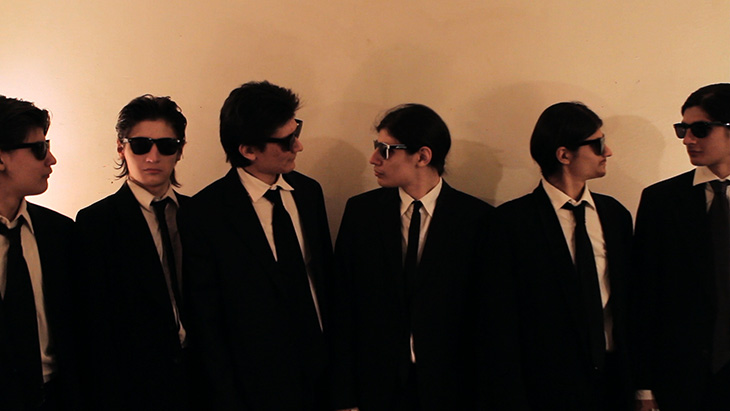
The Wolfpack (dir. Crystal Mosselle, USA)
Sundance Winner: Grand Jury Prize, Documentary
The crazy story of seven siblings confined to their lower-east-side apartment for more than a decade is both troubling yet also amusing, as they live vicariously through their love of movies, meticulously recreating them - in particular Tarantino’s early works and Chris Nolan’s Batman trilogy.
As the documentary charts their tentative exploration of the outside world, unsurprisingly fuelled by their evolution into manhood, the film hints at the power dynamics wielded by their father, the rules imposed upon them and their mother, but never pries deep enough into the dark recesses of their upbringing.
Instead, The Wolfpack paints a picture of a unique gang of brothers, who strike an imposing figure as they strut down the sidewalk, speaking either in direct quotes in highly affected movie-esque lingo. They are bubbling over with excitement and wide-eyed wonder, oblivious to how threatening they must appear, as they themselves are quietly terrified.
There’s a message here somewhere about the importance of a communal interactive society, and not judging people by their appearances, but the film seems content simply to enjoy the boys’ sweding and the surface of their story.
Read Dustin’s review here
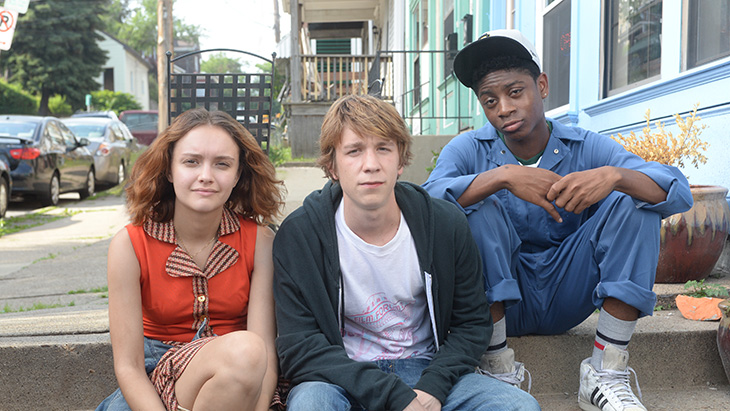
Me And Earl And The Dying Girl (dir. Alfonso Gomez-Rejon, USA)
Sundance Winner: Grand Jury Prize, Dramatic; Audience Award, Dramatic
It was funny watching this immediately after The Wolfpack, as both deal with youngsters expressing themselves through heavily influenced cinematic rip-offs, and also the notion of overbearing parenting. Me And Earl And The Dying Girl has a huge Criterion boner, which while I’m sure was a loving acknowledgement of the label’s success in making classics of World Cinema readily available, but it is of some concern to see the degree of influence this one label seems to have on this access. Couple that with the film’s blatant adoration for Criterion poster boy Wes Anderson - and there is a subliminal suggestion that a more manipulative power is at work, in how world cinema is being represented and curated.
Outside of these unsubstantiated quibbles, however, the film does a good job of recreating the high school experience as well as the difficult danger of projecting one’s own problems, issues and insecurities onto a sick person as a means of coping. The supporting cast, including Jon Bernthal, Nick Offerman and Connie Britton, do a great job of facilitating - rather than eclipsing - the three young leads. There’s no denying that the humour, adolescent naivety and charm ultimately win out, but there’s a transparency to the assembly that makes it easy to see the strings being pulled.
Read Jason’s review from Sundance here
People, Places, Things (dir. Jim Strouse, USA)
Pretty straight-forward break-up rom-com about a father of twins struggling to get over a separation. His partner, played by Stephanie Allynne, screws him royally throughout the film, yet is never really developed beyond being a total flake. It was interesting that they were able to use Will’s job as a comic book lecturer to steer and dictate the various movements of the plot, but ultimately it was pretty run-of-the-mill stuff, elevated by the humorous and charismatic performance by Jermaine Clement.
The child actresses playing the twin daughters were also rather adorable, while Jessica Williams, as one of Will’s students, was wasted in a role that failed to capitalise on her comedic skills. What Regina Hall delivered as her mother was great, but she wasn’t given nearly enough screen time. A shame as there was a definite spark between her and Clement during their scenes together.
Read Jason’s review from Sundance here
James White (dir. Josh Mond, USA)
Sundance: Audience Award, Best of Next!
The debut feature from Josh Mond, producer of Simon Killer and Martha Marcy May Marlene, is a tough coming-of-age tale featuring a couple of top-notch showboating performances. However, the desperate circumstances alone do not make for an engaging drama, and the desperately unlikable central character always keeps the audience at arm’s length.
Read my review here
The Stanford Prison Experiment (dir. Kyle Patrick Alvarez, USA)
Sundance Winner: Alfred P. Sloan Feature Film Prize; Waldo Salt Screenwriting Award
The events that went down at Jordan Hall in August 1971 have been recounted numerous times and inspired at least two films already - Oliver Hirschbiegel’s excellent Das Experiment (2001) starring Moritz Bleibtreu and Paul Scheuring’s American remake from 2010, starring Adrien Brody and Forest Whitaker. For this latest adaptation, writer Tim Talbott and director Kyle Patrick Alvarez return to the source for a meticulous account of exactly what happened - and why - at the Californian university.
Read my review here
Songs My Brothers Taught Me (dir. Chloe Zha, USA)
The debut feature from Beijing-born Chloe Zhao focuses on the unlikely subject matter of adolescent Lakota indians in South Dakota. Beautifully photographed and confidently directed, Songs My Brothers Taught Me is a notable first film, marred only by a rather cliched coming-of-age narrative, albeit in an original and intriguing setting.
Read my review here
Advantageous (dir. Jennifer Phang, USA)
Sundance Winner: Special Jury Prize, Dramatic
Jennifer Phang’s ambitious sci-fi drama presents some intriguing ideas about identity and sacrifice in a uniquely female context, but she invests her budget into the wrong elements, and is unable to fashion her final film into anything particularly engaging.
In the near future, the economic divide has grown exponentially, with new skyscrapers providing little more than shade for the countless starving masses. Even for the wealthy elite, it is women who are bearing the brunt of this climate, with popular opinion swaying towards them returning to the home, rather than see millions of men put out of work.
Read my review here
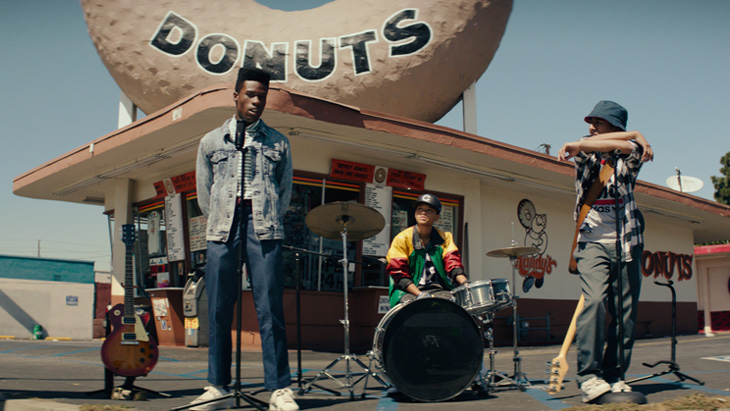
Dope (dir. Rick Famuyiwa, USA)
Sundance Winner: Editing Award, Dramatic
A hilarious high school comedy about life in South Central Los Angeles, Dope is a loving callback to such films of the 90s, particularly Boyz N The Hood, Friday, House Party and the like. It features a number of strong performances, a witty script and a lively directorial flair from Rick Famuyiwa that help it stay the course even after the narrative completely falls apart in the third act.
A break out for Famuyima, whose previous work has been confined firmly within the African American sub-genre of US Cinema, Dope also gifts its young cast with lively, expressive characters that should see a number of them go on to greater things. Zoe Kravitz continues to ascend, seen here as the dream girl both for unlikely hero Malcolm (Shameik Moore), but also local drug dealer Dom (A$ap Rocky). Moore is fantastic, as are his co-conspirators Kersey Clemons and Tony Revolori, and there’s also the chance to see the likes of Chanel Iman strut her stuff onscreen.
Produced by Pharrell Williams, Sean Combs and Forest Whitaker (who also provides narration), Dope has clearly tapped into the zeitgeist, and its energetic exuberance, throwback soundtrack, and matter-of-factness with which it addresses the societal problems facing residents of “The Bottoms” all feel fresh and genuine. Only in the last act, when dealing, blackmail and a needless desire to preach to the audience, does Dope lose its footing, and Malcolm seem less of a laudable role model. But otherwise, this was a hugely entertaining way to close out the fest.
Read Peter’s review here


































